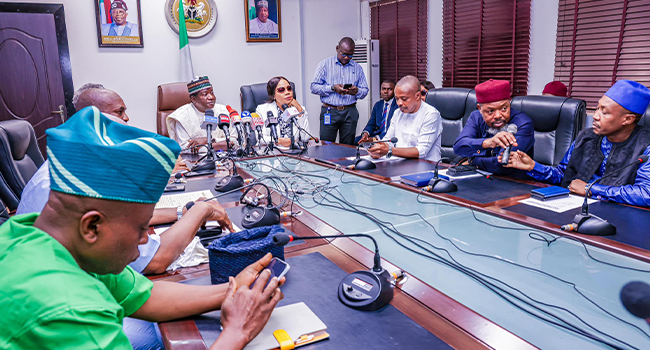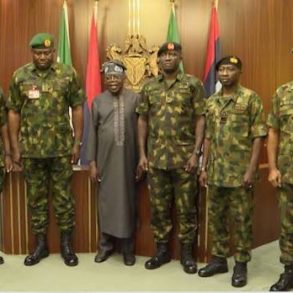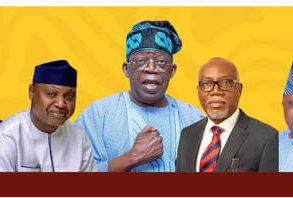The meeting between the Nigeria Labour Congress (NLC) and federal government officials regarding the fuel subsidy removal policy concluded without reaching an agreement on Monday evening.
The meeting, held in Abuja, involved key figures such as the Minister of Labour and Employment, Simon Lalong; the Minister of State for Labour and Employment, Nkeiruka Onyejeocha; the NLC President, Joe Ajaero; and other leaders.
Earlier in the month, the NLC organised a 2-day nationwide strike to protest the Nigerian government’s perceived inaction in addressing the challenges arising from fuel subsidy
The union accused the government of failing to implement resolutions from previous meetings.
The minister had previously invited both the NLC and the Trade Union Congress (TUC) for talks to avert the 2-day strike held on September 5 and 6.
However, “only the TUC showed up for the meeting,” Mr Lalong was quoted by Channels as saying.
On Monday, Mr Lalong emphasised the willingness of the government to cooperate with the union members to address the demands of the union.
In recent months, our country has witnessed teething challenges, marked by industrial actions and unrest that have adversely affected the economy.
“I appear before you today not just as a representative of the government but as an advocate for constructive dialogue, aspiring to understand your concerns and working hand in hand to find lasting solutions that benefit all Nigerians,” Mr Lalong was quoted by Vanguard as saying.
“I fully acknowledge and appreciate the invaluable role the NLC plays in championing the rights and welfare of our workers. Your dedication and tireless advocacy have been critical in shaping a fair and inclusive work environment and ensuring the well-being of our workforce.
“We acknowledge the valid grievances that have fueled the recent labour crisis, and we are committed to addressing them in a just and equitable manner.
“We must also recognise the economic realities that confront us. As we address the concerns of our workforce, we must be mindful of striking a balance that promotes economic growth and secures sustainable progress for our nation”, he said.
The minister called upon concerned leaders of various bodies to engage in open-minded and constructive dialogue to enable them to bridge any gaps that may exist between the interests of workers and the ultimate goal of driving economic advancement.
“In the spirit of unity and with utmost commitment to the betterment of our nation, let us seize this opportunity to listen and understand one another.
“Together, let us explore innovative approaches, reimagining strategies that enhance working conditions and worker benefits while nurturing a robust economy.
“I am confident that this gathering will produce resolutions that propel our labour sector towards greater strength and our beloved country towards a brighter future.
“We eagerly look forward to our discussions today, knowing that the harmonious collaboration between the government and the NLC will facilitate an environment where our workforce thrives and our economy flourishes,” Lalong said.
In his response, Mr. Ajaero said his team was in the meeting with mixed feelings to find out whether “something will happen or not,” as many similar meetings in the past had failed to yield a positive response.
He further noted that the past strike actions were a result of the frustration Nigerian workers faced due to the effects of the hardship occasioned by the removal of fuel subsidies.
According to him, not one of the agreements with the federal government was addressed despite a series of meetings that were held.
“We came with mixed feelings about whether it would work or not because we have had many meetings, some beyond this level, yet nothing seems to be coming out of it. But I have great optimism in the Nigerian project; we can’t stop trying,” he said.
“We are here with the belief that something may happen. But that doubt, that trust gap, is what we have feared for a long time now, and it calls for lamentation.
“The strike is an effect of a policy that doesn’t have a human face. There was no strike before the removal of the fuel subsidy. It was the government that said, Ask for palliatives, ask for wages, and we have asked for it. That warning strike was a product of frustration, up until this moment.”
Mr. Ajaero said that leaders must work together to ensure that they reach a compromise and address the plight of Nigerians.
“There is the issue of CNG, refineries working, wage awards, and cash transfers. Of all these agreements, not even one has been addressed by the government, and you want us to meet every day.
“Some of us have been around for a long time, and our job is not to go on strike, but when you enter into an agreement, that agreement should be implemented. Before the warning strike, we raised the issues of palliative care, wage awards, and the NURTW.
“Nobody earning N30,000 or N60,000 will buy fuel for one week. We need to find solutions to all these problems, and we have articulated them. Each time we finish, they ask for time. They asked for eight weeks, which we gave them.
They asked for four weeks, which we gave them. We don’t know what to tell our colleagues or members again. We hope that at the end of this meeting, we will have something to tell our members. This is a neck-breaking meeting,” he said.






